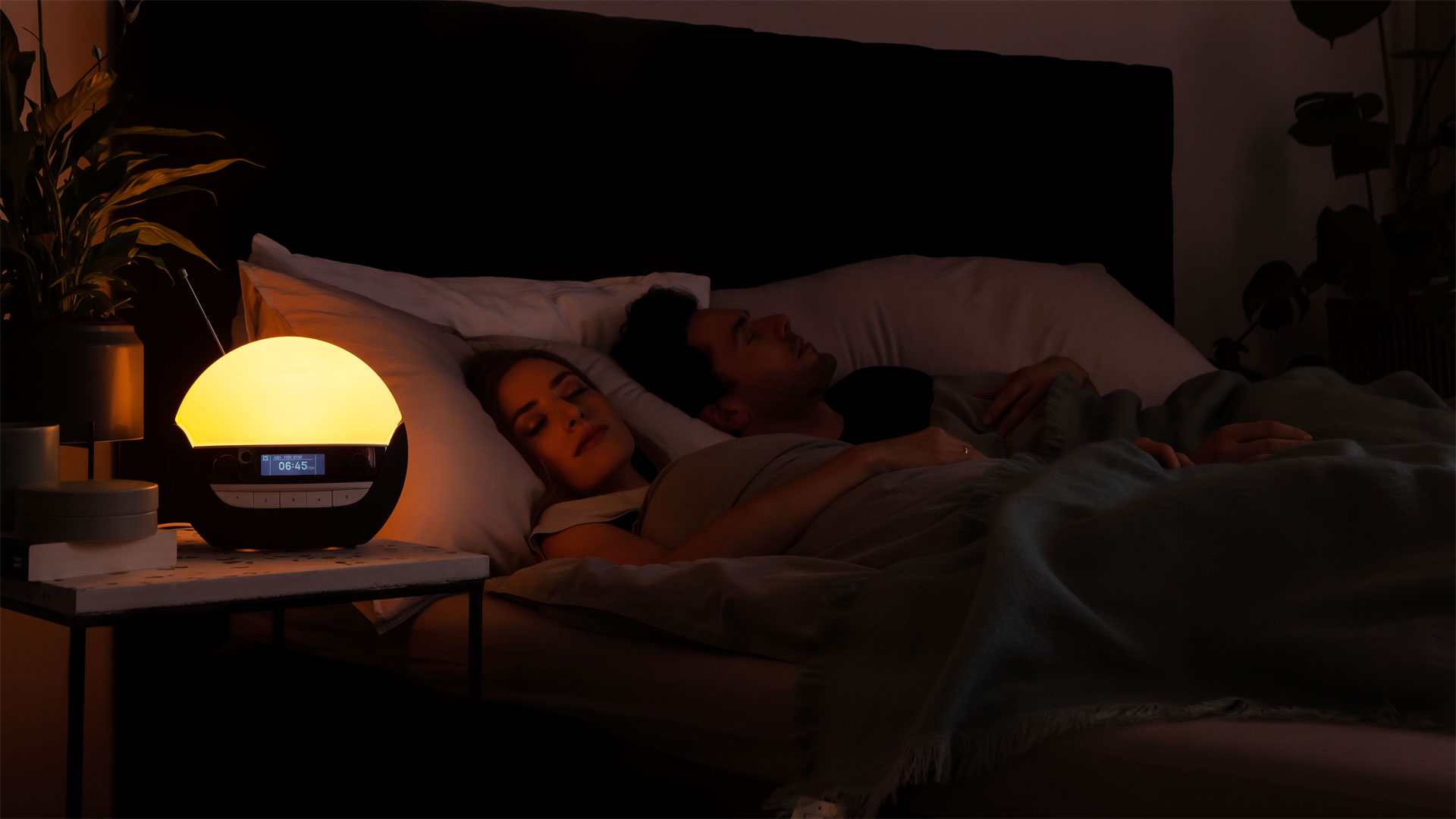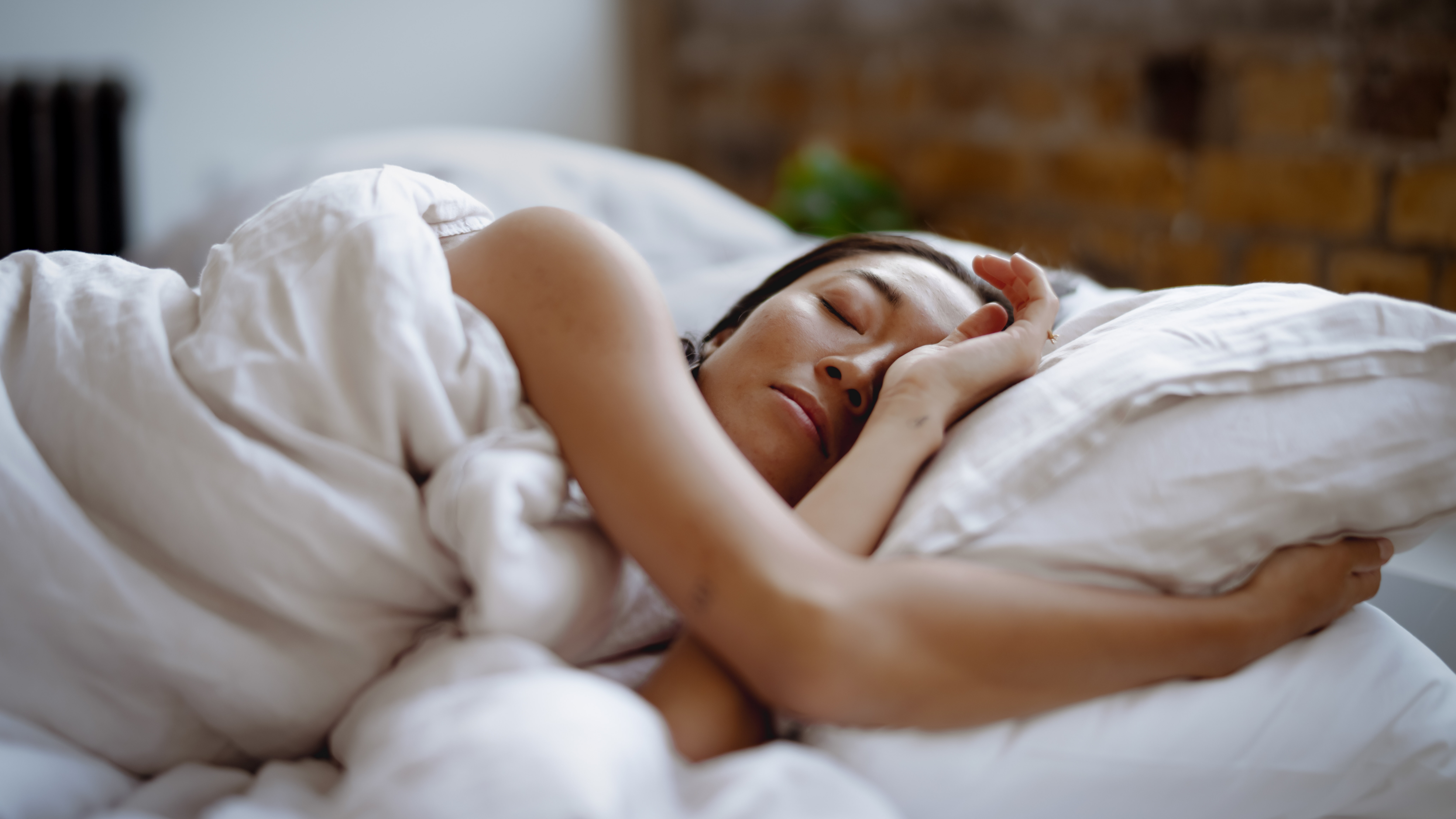

An interrupted sleep can have serious knock-on effects on your mood, energy productivity and general wellbeing. There is nothing worse than spending hours trying to doze off and hearing your alarm clock beep after only an hour of sleep. It's recommended that adults need an average of around 7-8 hours of solid sleep, but many of us struggle to hit that number.
There are a number of factors that can affect how consistent and restful our sleep habits are. Here, Rob Davey, sleep expert at Snoozel Green has shares seven ways to transform your sleep.
- Keep an eye on your bedtime habits with one of the best sleep trackers
1. Try breathing exercises to switch off
"The more stimulated your brain becomes during the day, the harder it can be to unwind at night," says Rob. To calm you brain ready for bed, a simple trick to try is the 4-7-8 breathing exercise.
Rob explains: "Exhale completely through your mouth, then close your mouth and inhale through your nose for a count of 4. Hold your breath for 7 counts and exhale for 8 counts. Repeat as much you need to. Breathing from your belly rather than chest can help to activate the relaxation response and lower your heart rate, blood pressure and stress levels."
If that doesn't work for you, try these stress relieving breathing techniques instead.
2. Reassess your mattress
Perhaps the most obvious place to look is to your mattress. Investing in the best mattress for your needs and sleep style can have a transformative effect. "Sleeping on a mattress that is lumpy in texture can cause discomfort and result in a bad night’s sleep," says Rob. "Over years, your mattress will sag which leads to inadequate support during the night and bad sleep hygiene. A low-quality mattress forces you to sleep in an unnatural position which causes back strain."
There are a range of options on the market. The main choice you will need to make is springs vs memory foam, but you could also venture into the world of latex – Snoozel Green makes a natural, eco mattress that combines natural latex with with organic cotton and wool fibres, and is designed to prevent the growth of bacteria, moulds, and dust mites. A new mattress might not be as pricey as you expect, either – there are regular mattress deals to take advantage of.
Sign up to the T3 newsletter for smarter living straight to your inbox
Get all the latest news, reviews, deals and buying guides on gorgeous tech, home and active products from the T3 experts
3. Limit your bedroom use
In an ideal world, your bedroom should be your dedicated sleep space only. "Using your room to watch TV or eat will train your brain to view the room as social. This can lead to your brain not shutting off when you need to sleep," explains Rob. "Remove as much clutter from your bedroom and keep the area free from excess electronics and distractions. Keeping a clear space will build a strong association between sleep and the bedroom."
4. Adjust your bedtime gradually
If you've ended up in a habit of going to bed too late, it's best to try and adjust it gradually. "It’s impossible to make big changes to your sleep pattern overnight," stresses Rob. "The most realistic way is to make small changes." So if you've been going to be at 1am and you really should in bed at 10pm to get your full 8 hours, start by going to bed at 12.45am for the first few nights, then adjust to 12.30am, and so on.
"Adjusting your sleep schedule gradually will conclude in an easier transition. If you try and force yourself too much, it will create more stress and tension related to sleep," he continues.
You could also try using a sunrise lamp in place of an alarm clock. These gradually get brighter in the morning to wake you more gently and promote a more natural sleep-wake cycle (our best wake-up light guide explains more).

5. Watch your eating habits
What and when you eat can play a big role in how well you sleep. A diet that includes lots of fruit, vegetables and healthy fats can help you drop off faster, says Rob. He also recommends eating dinner two hours or more before bedtime, to give your stomach time to digest the food before you head to bed, and limiting your evening intake of sugary foods and refined carbs, which can make you feel more alert.
6. Get moving during the day
"People who exercise regularly have noted that they sleep better at night. Consistent exercise improves symptoms of insomnia and sleep apnea," explains Rob. "The more strenuous your exercise, the better your sleep will be."
Don't expect instant results though: it can take several months of regular exercise to have an impact on your sleep habits. It's also important not to work out too close to bedtime. "Try to finish workouts at least 3 hours before bedtime as your body temperature and metabolism needs time to cool down," says Rob.
Ruth is a lifestyle journalist specialising in sleep and wellbeing. She has tested more mattresses than her small flat can handle and will talk at length about them to anyone who shows even a passing interest, and has had to implement a one-in-one-out pillow policy for fear of getting smothered in the night. As well as following all the industry trends and advancements in the mattress and bedding world, she regularly speaks to certified experts to delve into the science behind a great night's sleep, and offer you advice to help you get there. She's currently Sleep Editor on Tom's Guide and TechRadar, and prior to that ran the Outdoors and Wellness channels on T3 (now covered by Matt Kollat and Beth Girdler-Maslen respectively).
-
 This is the sound of BMW's upcoming Neue Klasse EVs
This is the sound of BMW's upcoming Neue Klasse EVsHas BMW cracked the problem of making EVs sound fun with its next-gen soundscape for its Neue Klasse cars
By Alistair Charlton
-
 Build unshakeable core strength with a kettlebell and these three exercises
Build unshakeable core strength with a kettlebell and these three exercisesAdd this to the end of your workout to fire up your midsection muscles
By Bryony Firth-Bernard
-
 I spent 6 weeks with the FoodMarble Aire 2: here’s what I learned about my gut health
I spent 6 weeks with the FoodMarble Aire 2: here’s what I learned about my gut healthI’ve been testing the clever breath-testing gadget with the companion app over several weeks to find out if it delivers on its promises
By Lee Bell
-
 Oil pulling is going viral on TikTok for stopping morning breath – but does it actually work?
Oil pulling is going viral on TikTok for stopping morning breath – but does it actually work?4 hacks that prevent morning breath, according to a sleep expert
By Bethan Girdler-Maslen
-
 These limited edition McLaren x Loop earplugs are what you need for Formula 1 season
These limited edition McLaren x Loop earplugs are what you need for Formula 1 seasonMcLaren teams up with Loop on limited edition noise-reducing earplugs
By Bethan Girdler-Maslen
-
 5 sleep supplements that help me achieve 8+ hours of rest every night
5 sleep supplements that help me achieve 8+ hours of rest every nightIt took me years to perfect my sleep routine – here are the supplements that helped
By Lizzie Wilmot
-
 3 reasons why you wake up at 3am every night – and how to avoid it
3 reasons why you wake up at 3am every night – and how to avoid itAlways waking up in the middle of the night? This could be why…
By Bethan Girdler-Maslen
-
 This tiny device will automatically disable your distracting apps before you sleep
This tiny device will automatically disable your distracting apps before you sleepSay hello to Kip...
By Lizzie Wilmot
-
 Therabody experts give 7 tips for perfecting your sleep routine for World Sleep Day
Therabody experts give 7 tips for perfecting your sleep routine for World Sleep DayFrom breathing exercises to sleep masks, here’s how to prioritise sleep, according to experts
By Bethan Girdler-Maslen
-
 Loop Dream review: super soft earplugs to help you snooze soundly, even if you’re a side sleeper
Loop Dream review: super soft earplugs to help you snooze soundly, even if you’re a side sleeperSquishy silicone and uniquely shaped ear tips take Loop’s nighttime earplugs to dreamy heights
By Joanna Ebsworth